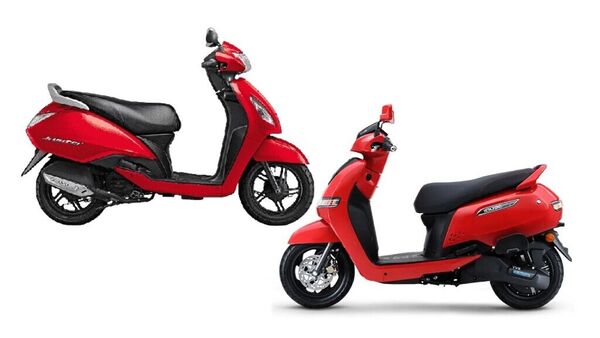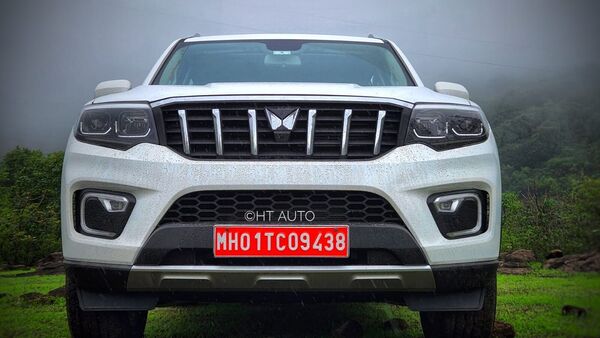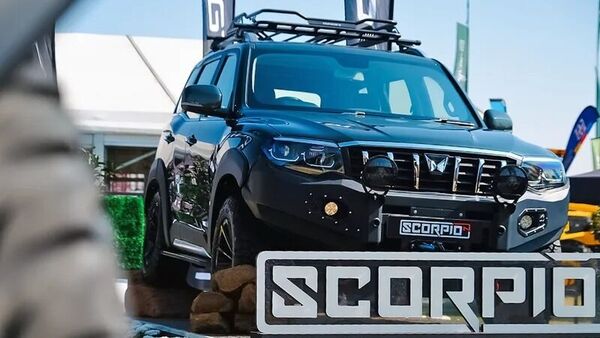
It's a great time to buy an electric scooter instead of a petrol one. Here's why
3 months ago | 5 Views
Scooters have truly democratised the personal mobility space in the Indian market. While the motorcycles certainly holds the lion's share in the Indian two-wheeler market, scooters too have been instrumental in ramping up the cumulative sales volume in the Indian two-wheeler segment. In the last couple of years, advent of electric scooters has further expedited the democratisation of personal mobility, specially since the outbreak of Covid-19 pandemic, which influenced people's decision to own a personal vehicle at a great extent.
However, to buy or not to buy an electric scooter remains as a great dilemma for many consumers in India even after the rapid growth of this segment. Influx of so many electric scooters in the market has certainly opened a floodgate of options for such buyers across India over the last few years. However, despite the government's push for electric mobility through various subsidy and incentive schemes, discounts and offers by the OEMs, many consumers often get confused, whether to buy an electric scooter or a petrol powered model.
While many buyers seeking to own a practical, cost-effective and value-for-money two-wheeler for regular commuting, a large number of customers get confused due to various factors like range anxiety, comparatively higher cost of acquisition, uncertainty about the battery replacement etc.
If you are willing to buy an electric scooter instead of a petrol one but confused if the decision would be right or not, here's why it will not be a regrettable decision buying the EV.
Electric scooter vs petrol scooter: Cost of ownership
Let us consider the average daily commuting distance is 30 kilometre, per unit electricity charge is ₹10 and per litre petrol cost if ₹100; to make things easily understandable for consumers from different parts of the country. Based on this, let's calculate the cost of ownership for an electric scooter and a comparable petrol model.
Calculation of an electric scooter
With the daily commuting distance being 30 kilometre, total distance the rider is supposed to cover in a month is (30 kilometre x 30 days) 900 kilometre. Considering per unit electricity charge is ₹10 and an electric scooter requires about five unit of electricity, the EV commands electricity consumption of ( ₹10 x 5 unit) ₹50 per charging. If the electric scooter can run 100 kilometre distance on a single charge, per kilometre electric consumption for the EV is ( ₹50/100 kilometre) ₹0.50 per kilometre. In that case, monthly electricity cost for charging the electric scooter is ( ₹0.50 x 900 kilometre) ₹450. The yearly electricity cost is ( ₹450 x 12 month) ₹5,400. If we take about ₹2,000 as cost of maintenance for the EV, the yearly cost of ownership is ₹7,400.
Calculation of a petrol scooter
With the daily commuting distance being 30 kilometre, a petrol-powered scooter being able to offer about 50 kmpl mileage, and petrol price being ₹100 a litre, monthly petrol cost for the rider is (30 kilometre x 30 days/50 kmpl x ₹100/litre) ₹1800. This results in the annual cost of petrol being ( ₹1,800 x 12 months) ₹21,600. Add ₹2,000 of cost of maintenance with it and a petrol scooter's cost of ownership for a year is ₹23,600.
What this calculation says
This means, the rider can save ₹16,200 in a year with the electric scooter over a petrol-powered model. Clearly, that's a significant chunk of money for many consumers. It is also enough to make you decide buying an electric scooter instead of a petrol-powered one.
Electric scooter vs petrol scooter: Cost of acquisition
While it is proven that electric scooters offer significantly lower cost of ownership over its lifespan compared to their petrol-powered counterparts, there are various other factors too that influence the buying decision of a consumer. The cost of acquisition is a major one among them. Due to the high cost of the lithium-ion batteries that are imported from overseas markets, electric vehicles in India are significantly costlier than their ICE counterparts.
The Ola S1 Pro and Ather 450X (3.7 kWh) are two of the most popular electric scooters across India. With the FAME 2 subsidy applied, the Ola S1 Pro and Ather 450X electric scooters cost ₹129,999 (ex-showroom, Delhi) and ₹128,671 (ex-showroom, Delhi), respectively.
On the other hand, India's bestselling scooter Honda Activa is priced between rs 76,234 and ₹82,234 (ex-showroom, Delhi), while the Activa 125 is priced between ₹79,806 and ₹88,979 (ex-showroom, Delhi). Another highly popular scooter in India, TVS Jupiter comes priced between ₹73,340 and ₹89,748 (ex-showroom, Delhi).
Clearly, the electric scooters command a much higher premium over the petrol models.
Why buying an electric scooter still make sense?
It is true that despite the availability of the FAME 2 subsidy and various state governments' EV policy incentives, electric scooters come priced significantly higher than their ICE counterparts. But, you have to consider the overall cost of ownership, which includes the yearly recurring costs alongside the cost of acquisition. The cost of acquisition for an electric vehicle may be much higher than a fossil-fuel powered counterpart, but in the long run investment on the electric scooter sees faster reach to break-even point than the ICE vehicle. Reaching the break-even point takes even less time, if the commuting distance is higher.
Not only this, in a constantly evolving regulatory framework, and many of them being against fossil-fuel vehicles, owning an electric scooter offers peace of mind to the consumer. When it comes to range anxiety and charging infrastructure related worries, the electric scooters are highly practical for commuting in and around cities across India, not on highways, at least at present scenario. Hence, if you are looking for a two-wheeler for your regular commuting and in dilemma between an EV and an ICE vehicle, choose the first one without worry.
Read Also: hero mavrick 440 first ride review: hero’s top gun?
# Electricscooter # EV
















